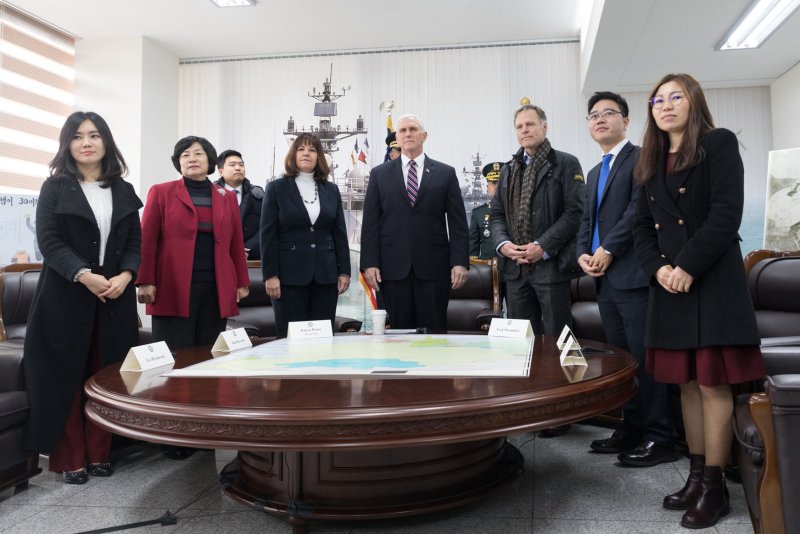Vice President Mike Pence, accompanied by his wife Karen Pence and Fred Warmbier, father of Otto Warmbier, the American who died following his release from North Korean captivity last year, meet with North Korean defectors at the Cheonan Memorial in 2018,in South Korea. File Photo by D. Myles Cullen/White House |
License Photo
Nov. 6 (UPI) -- More than 800 North Korean defectors resettled in the South in 2019, and their number is expected to surpass 1,000 by the end of the year.
South Korea's unification ministry said Wednesday a total of 828 North Koreans sought and were granted asylum in the South, Yonhap reported.
A total of 229 North Koreans resettled in the South in the first quarter, 319 people in the second quarter, 223 people in the third quarter and, so far, 57 people in the fourth quarter.
The numbers reflect similar levels of migration and asylum seeking among North Koreans from a year ago. In 2018, a total of 1,137 North Koreans resettled in the South, according to Seoul.
Their numbers have decreased significantly since Kim Jong Un fully assumed power in 2012. In 2009, the ministry said as many as 2,914 people had defected to the South; that number has more than halved since Kim took power.
North Koreans are seeking new lives in the South despite challenges. In July, a North Korean woman and her infant son were found dead in their apartment in Seoul, triggering outrage among defectors about "government neglect."
South Korea has increased the resettlement award for defectors since the incident, from about $6,000 to $7,000.
North Korean defectors often suffer from trauma and show symptoms of post-traumatic stress disorder or depression.
Researchers from the University of Konstanz and a second German research university said in a paper published in October North Korean youth show greater symptoms of trauma than their South Korean counterparts.
"Higher rates of violence and trauma and higher levels of mental health problems were found in the North Korean sample compared to the South Korean sample," researchers said.
Close to 90 percent of North Koreans surveyed said they had experienced traumatic events, and about 60 percent said they had experienced starvation, forced labor beatings and imprisonment, according to the researchers.















